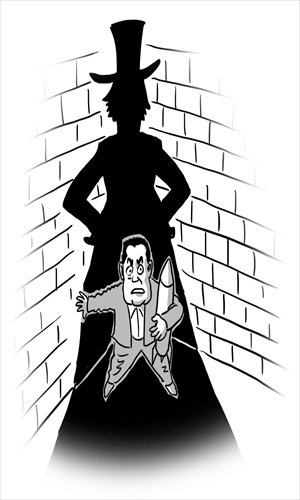US should take on greater share of blame for Korean Peninsula crisis

The situation in the Korean Peninsula has reached a hazardous point, and a second Korean war could break out at any moment.
North Korea has become the center of world attention. Many people believe that it is the troublemaker, and the key point in easing the tensions on the peninsula is to force the North to stop its belligerent behavior. I think this opinion is reasonable but partial, since it ignores the dominant role that the US has played on the Korean Peninsula.
Compared with the strength of South Korea and the US, North Korea is undoubtedly in a weak position. Economically, North Korea lags far behind the South, and its military might is also incomparable to Seoul's.
North Korea seems to be the provocative side during the past years' tensions between the US and North Korea. But if we consider deeply, that's not the case. Going back to the DPRK-US Nuclear Agreed Framework signed in 1994 and several agreements reached during the Six-Party Talks, North Korea expressed its willingness for denuclearization several times. However, the US didn't echo the North's actions by making equal concessions or changing its policy against the North.
Both countries must shoulder an inescapable responsibility for the rising tensions. However, as the stronger side, the US should be primarily liable for the North Korean nuclear crisis.
The US turns its back upon North Korea's request for security. Because of the big gap in strength between the two countries, North Korea has concerns about its security and self-protection, which results in all its diplomatic policies.
The US sometimes shows its respect for the existence of the North Korean regime, however, it has never given up its intent of overthrowing the regime by force. It is not right and should be condemned if the weak side resorts to radical solutions when confronted with a matter of life and death. However, we have to look for the deep reasons of the actions.
It is time for the US to reflect on itself, as the situation of the Korean Peninsula is risky. The US should put the peace and development of the world, especially East Asia, first, and actively seek dialogue with the North.
The best choice for the US is to reach out and negotiate with the leadership of North Korea. We all remember that one of the lessons of the Cuba missile crisis in 1962 was to dialogue with the enemy. The negotiations between then Soviet premier Nikita Khrushchev and US president John F. Kennedy successfully avoided a chain of unforeseeable bad events.
Before Barack Obama took over US president, he also claimed that the US would hold talks with North Korea, and he hoped that the normalization of the US-North Korea relations would be realized by the end of 2012. Nevertheless, Obama has forgotten his promise totally.
Withdrawing US troops from South Korea is the fundamental way to resolve the crisis. It seems normal that the US deploys troops in South Korea, since they have been there so long, but it is the crux of the North Korean nuclear crisis.
The US military presence in South Korea is a product of the Cold War and should be abandoned. The US presence in Japan can prevent the revitalization of militarism. But it's unthinkable for the US to have troops in South Korea, especially since the Chinese People's Volunteer Army withdrew from the Korean Peninsula in 1958. The US can withdraw its troops from Afghanistan. Why does it still deploy troops in South Korea?
The US has to reduce its number of nuclear weapons so as to ease the tensions on the Korean Peninsula. The main reason of North Korea's unwillingness for denuclearization is the US double standard on the nuclear issue. It is impracticable if we force North Korea to denuclearize, because in fact it has already conducted its nuclear program.
So the US, Russia and China should make efforts to decrease the number of nuclear weapons, and even realize denuclearization. As the main global power, the US must lead the way to realize global denuclearization.
The author is a professor of School of International Studies at Peking University. opinion@globaltimes.com.cn